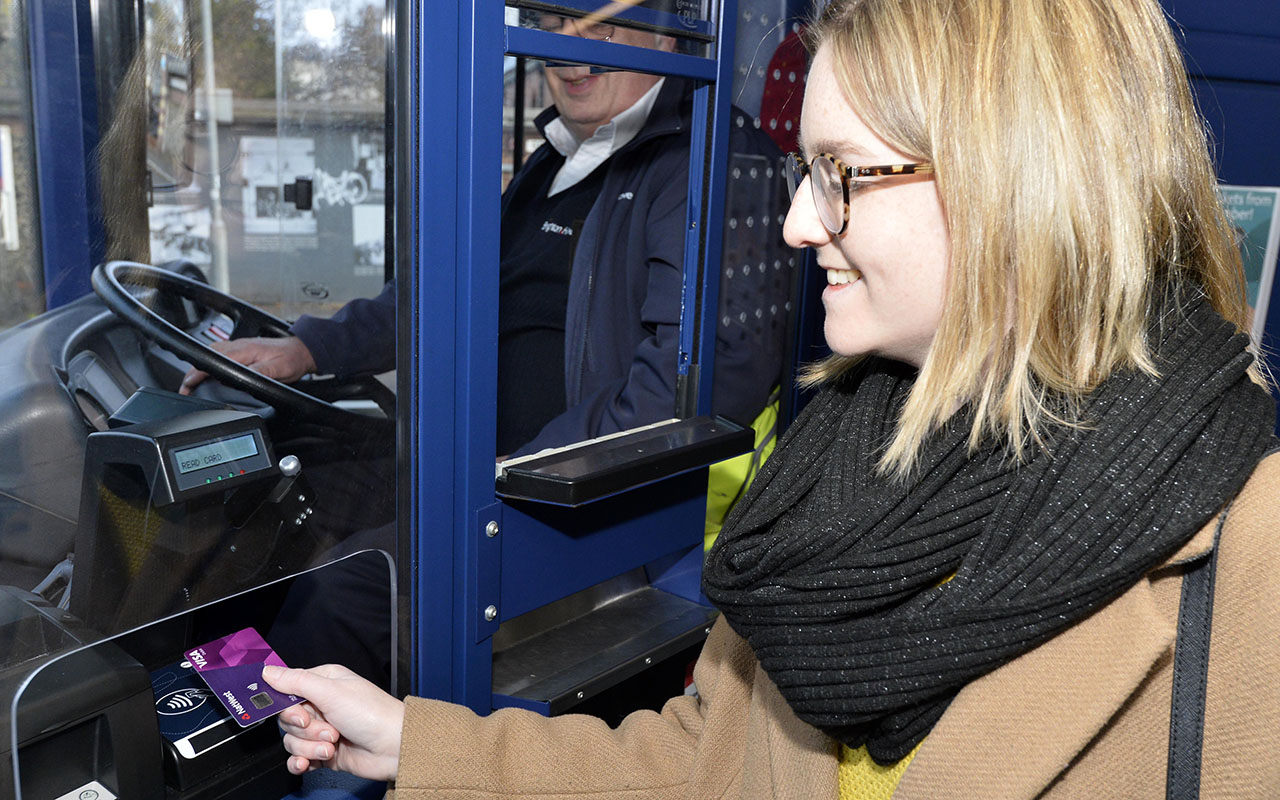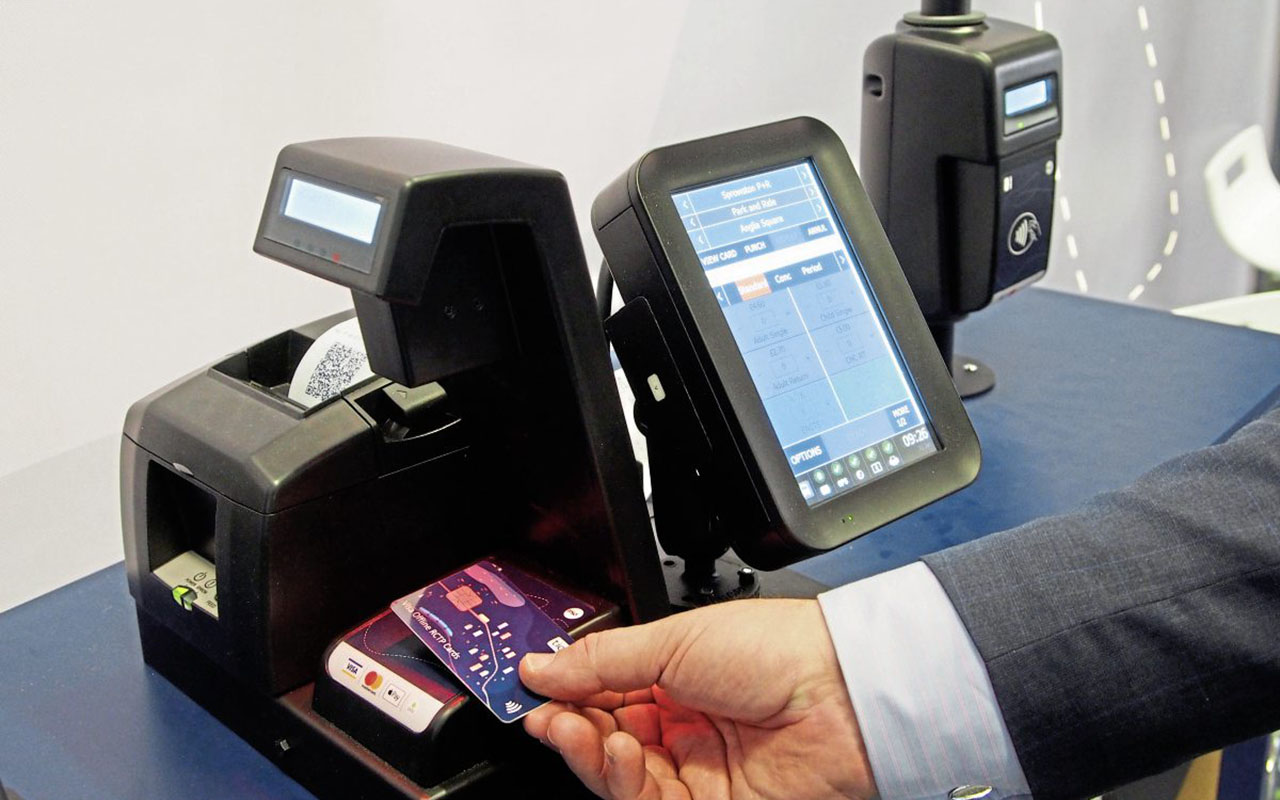Fourth industrial revolution: how Ticketer’s disruptive technology drives buses
Lombard is financing technology that makes bus travel easier

How do you go from nothing to a dominant market share in just ten years? For Ticketer, which supplies electronic ticket machines for buses, the answer was to build their business on the type of disruptive new technology that is powering the “fourth industrial revolution” - an umbrella term for automation, online communication and artificial intelligence.
In 2009, when John Clarfelt was involved in the running of a company which sold remote data management systems, he was introduced to the head of a local bus operator. The chance conversation sparked the idea that became a multi-million-pound firm.
The operator told Clarfelt that bus companies would welcome a new entrant to the ticket machine market, recalls Gordon Montgomery, who joined forces with Clarfelt to found Ticketer.
The Week
Escape your echo chamber. Get the facts behind the news, plus analysis from multiple perspectives.

Sign up for The Week's Free Newsletters
From our morning news briefing to a weekly Good News Newsletter, get the best of The Week delivered directly to your inbox.
From our morning news briefing to a weekly Good News Newsletter, get the best of The Week delivered directly to your inbox.
“There was a well-established market for electronic ticket machines in buses, but the technology was probably 10 or 15 years old,” says Montgomery. “The suppliers who dominated the sector were perceived as not moving with the times. We were advised they were supplying the technology they had, not the technology customers wanted. We came out with disruptive technology, right up to date.”
Ticketer launched on 7 September 2009 and, according to Montgomery, spent the first year developing the product. Its first customer, in September 2010, was a small bus operator in Kent.
From that tentative start, Ticketer has grown rapidly. The firm now has some 60% market share outside London, with its machines on more than 23,500 buses - not to mention trams (even a horse-drawn one, in the Isle of Man), ferries and a hovercraft.
Innovative new technology
A free daily email with the biggest news stories of the day – and the best features from TheWeek.com
Ticketer’s innovations include smart machines which incorporate a sim card, so they can communicate directly with Ticketer’s cloud-based portal. That allows the data collected by the machines to be more easily used, distributed and analysed by the bus operators to drive more efficient and better services for the public. Local authorities also like the transparency of the information fed to them. The online architecture made it the ideal solution to enable passengers to pay with contactless cards and use smartphone-based mTickets, which have been key drivers in achieving Ticketer’s dominant market share.
The technological advances don’t end with ticketing, tracking and scheduling: the machines are also about to revolutionise the bus maintenance process. Currently, drivers fill out paper forms to report any problems with their buses - a broken wiper, say - which would not typically be reported until they get back to the depot that evening.
The fourth industrial revolution
- Podcast
What high-tech connected cities will mean for the people who live in them
Listen to podcast
- Insight Report
How the fourth industrial revolution will change the world
Download now
- Age of Disruption
Promoting business agility in an ever-changing world
Learn more
Some operators have several hundred buses operating out of one depot, creating a paper trail that is cumbersome for maintenance departments to manage and inevitably leads to delays in ordering parts and implementing the repairs.
Ticketer’s machines let drivers log problems electronically from the bus - and they communicate directly with the operator’s maintenance systems, allowing the repair to be made more quickly and the audit trail to be simplified.
Dealing with regulation
It wasn’t all straightforward, Montgomery recalls. “We had the technological knowledge to feel confident we could make a product that would work. What we didn’t have experience of was getting it certified by the Integrated Transport Smartcard Organisation (ITSO), which regulates the standards used for smart card issuance and recognition in the UK.”
Coming up with a system that satisfied the requirements of ITSO was Ticketer’s first big challenge. They cracked it - and Montgomery notes that by virtue of understanding the process in detail, Ticketer has become “expert in the UK on their requirements”.
The company’s market position in the UK puts the firm in good standing for future development. They are now creating a multi-operator travel app, called Kazoot, to make bus travel easier for passengers nationally, as well as rolling out overseas and investigating the feasibility of moving into train travel.

Lombard gets on the bus
Ticketer had been banking with NatWest - which together with Lombard is a member of NatWest Holdings Limited - but when they were approached by First Group, a major bus operator, about three years ago, Lombard also came aboard.
Montgomery explains: “First Group wanted to rent our machines from us, rather than buy them - it was the first time we had contemplated doing that. They had around 6,000 buses and taking that onto our balance sheet at the time would have been prohibitive.”
Ticketer was introduced to Lombard senior relationship manager Matt Francis, who supplied some £7.5m in direct funding to facilitate the First Group transaction.
“It’s been a fantastic relationship - they’ve been incredibly helpful,” says Montgomery. “Because what we were trying to do was new, they altered some of their standard requirements so that we could achieve the arrangement we came to for our First Group deal.
“And Lombard has been very supportive now that we’re rolling out overseas. Traditionally, they don’t take security on assets abroad but we’re looking at UK export finance and talking to Lombard about how we might get around this issue.
“They’re keen to do so - and very pleased with what we’re trying to achieve.”
What’s next?
“We spend a large part of our resources on developments for the future,” says Montgomery. “We’re the first company to offer tap-on, tap-off outside London. We’re bringing out our bus travel app for customers at the end of the year - and we’re developing hardware and software to suit overseas markets.
“Due to the application of technology, and the level of competition, there has never been a time at which there’s been faster change in how public services potentially will be provided in the future - and our technology is very much part of facilitating that.”

To find out how Lombard could help your business or to get a free quote, visit Lombard.co.uk, call us on 0800 502 402, or text Relay 18001 0800 502 402
Security may be required. Product fees may apply. Finance is only available for business purposes
-
 Political cartoons for March 1
Political cartoons for March 1Cartoons Sunday’s political cartoons include the new normal, the sign of times, and more
-
 Death in Lyon: the growing violence in French politics
Death in Lyon: the growing violence in French politicsTalking Point The death of Quentin Deranque has revealed the violence within the anti-fascist movement, and shown how the Right are ‘shamefully exploiting’ this tragedy
-
 The row over student loans: is the system unfair?
The row over student loans: is the system unfair?The Explainer Millions of graduates have been left with hefty student loans, at high interest rates
